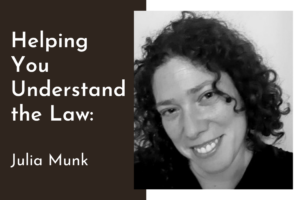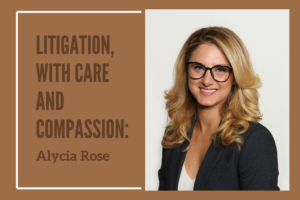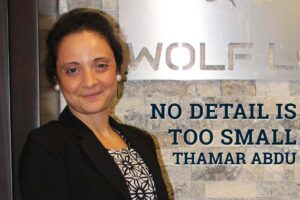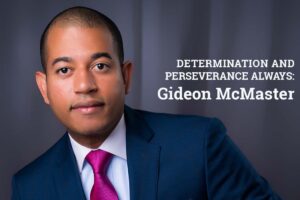Posts Tagged ‘Wolf Law Chambers’
Five Tips for Shared Workspace Etiquette
As more and more businesses and industries move toward remote or flexible work arrangements, coworking spaces are becoming increasingly popular. Some companies, especially start-ups, have always worked in coworking spaces. However, there are some professionals who, although are more comfortable with traditional offices, are now facing a coworking arrangement. Many of these professionals are unfamiliar with coworking spaces, and it’s imperative to understand coworking space etiquette if one is going to be using it.
One type of coworking space that is increasingly popular is a shared office space that individuals, teams and organizations can all use. The majority of coworking spaces have everything you need for a productive workday:
- Photocopier
- Printer
- Drinks and Snacks
- Micro-website
- Cleanliness
- Sending and Receiving e-mail
- Electronic Client and Package Notification
A high-speed internet connection and after-hours events are also frequently available.
When using a coworking space, being mindful of those around you is essential.. Having a basic understanding of coworking etiquette will ensure you are a respectful and respected member of the space when you visit for the first time.

Coworking Space Etiquette Tips
1. Use headphones
Make sure you listen to your music, podcasts, or white noise privately while you work. Headphones are a “must-have” when working in a coworking space. Noise-canceling headphones are also handy for blocking out conversations and activities around you. All calls, and meetings, should be conducted with headphones or a headpiece. No one else is interested in hearing your conversation! While coworking spaces are conducive for sharing ideas with other professionals, sometimes you don’t want to be disturbed, and headphones are a handy but polite way to indicate that.
2. Be conscious of space
A specific desk, table, or booth may be assigned exclusively to you in some coworking spaces. Other spaces are shared: different people will use the same space on a rotational or first come, first served basis. Finally, nearly all coworking spaces have communal areas with tables and couches for working to be used by anyone at any time. The shared nature of these work areas means it’s essential to be conscious of how much space you’re using. It’s impolite to spread your papers and tools over an entire table if there are others also looking for space.
3. Be aware of the time
Time is everything when it comes to coworking space etiquette. Don’t forget there is a person who has reserved the meeting room/workstation after you. Wrap up your work or meeting on time. Consider others if you’re using a phone booth. Booking meeting rooms, tables and workspaces are no different; don’t assume it’s available. Always book the space well in advance to ensure you get it and to refrain from infringing upon colleagues’ time. In coworking spaces, most things are shared, so adhering to a schedule allows you to be a more respectful office colleague
4. Keep boundaries in mind
Coworking spaces offer many positive benefits, including collaboration. However, not everyone wants to collaborate all the time. Try not to interrupt someone too frequently, and be mindful of their work habits. Consider scheduling time to collaborate with them instead of dropping by at any time. Collaboration and networking events are also common in many coworking spaces. Meet your coworkers!
5. Clean up after yourself
Coworking spaces are no different than regular offices or communal spaces in that general etiquette and common courtesy dictate that you clean up after yourself. Despite shared offices having janitorial services, it’s your responsibility to leave your workspace as clean or cleaner than you found it, so that the next person can sit down and begin working immediately. Coworking spaces often have communal kitchens, printer rooms, meeting rooms, and phone booths which should be treated with respect and cleaned after each use as well.
We hope these tips have helped! Coworking spaces are important and a great benefit to the modern professional, but as in any area when there are many people, we all have to work together to keep everything running smoothly.
Wolf Law Chambers knows how important it is for lawyers, paralegals, and solo practitioners to meet with clients. Using our meeting rooms, you’ll be able to conduct your meeting successfully. Learn how to schedule your first meeting today by checking out our meeting room services.
Julia Munk: Helping You Understand the Law
Julia Munk actively seeks to change the world by helping each of her clients understand their legal rights and the process they are apart of.
If you come away understanding the legal picture a little bit better, she has succeeded.
“When I was in the fifth grade my teacher asked us to draw pictures of what we wanted to be when we grew up. My best friend drew a teacher and the boy next to me drew a firefighter. I drew a stick figure holding up a sign on a stick and wrote across the top of my page, “When I grow up, I want to be a protester.”
My teacher asked my why I wanted to be a protester and without a second thought I responded, “So that I can change the world.”
– Julia Munk of Munk Law
A Change in Direction
Julia Munk originally intended on becoming a disability studies professor. She did her undergraduate degree at the University of Toronto studying political science and equity studies. This was followed by a Masters at University of Victoria where she studied Studies in Policy and Practice and Social Services. Julia was ready to graduate and continue on a professorship career path when a situation developed in her personal life that changed everything. Julia suddenly became intimately familiar with parental rights and this led her to re-examine her career trajectory. She decided that her original plan did not line up with her shifting priorities. She concluded, “I realized I wanted a career where I’m not just writing about social justice in theory, but I’m actually able to do things for people in practice that will help their lives.” She decided to pursue a career in law.
Joining the Legal Community
After graduating from Osgoode Law School in Toronto in 2016, she considered the several options available to a newly-minted lawyer. The most attractive was becoming a sole practitioner. And Julia knew exactly the kind of law she wanted to practice and the types of clients she wanted to represent. Of course, Julia is glad to represent anyone who seeks her services, but she’s especially passionate about reaching the people who believe legal representation is beyond them, inaccessible physically, financially, or socially.
Being a sole practitioner can be lonely, so Julia began looking for ways to plug into the legal community. She heard about the law chambers concept and immediately loved the idea. A law chambers would connect her to the legal community and put her in direct contact with other lawyers. It would give her everything she was looking for: allow her to run her own practice but not feel like she was all by herself. Julia saw an ad on LinkedIn for Wolf Law Chambers and went for a meeting to learn more about the chambers concept. The price was right and provided a professional environment to work in and to meet clients. It was important to her to have an office space that reflected the professionalism with which she approaches her career. Wolf Law Chambers stood well above rivalling office options available to her as a new law practitioner. Everybody was friendly. At the end of her visit, she thought, “This place is up-and-coming,” And then, “I’m up-and-coming too.” So she signed up for a virtual office.
It’s proven to be a good decision. Julia has found that being part of Wolf Law Chambers reminds her that she’s not that different from other lawyers. “Sometimes I think when you’re working all by yourself you feel like you are,” she said. She loves being around other professionals who think law is as exciting as she does. She was also immediately connected to another lawyer who consulted with her on her specialty. The benefits of Wolf Law Chambers’s referral network were immediate.
Her Practice
Julia tries to make her practice as client-based as possible. “I’m trying to increase access to justice to the best of my ability to clients who would otherwise not be able to access legal services.” Family law, estates issues, and human rights are the three main prongs of her practice. Within estates, she enjoys doing something for families because it’s also connected to disability and capacity issues as well as protecting people’s rights as they get older. Disability law and elder law have a lot of overlap which intrigues her. Within family law, her scope ranges from child protection to representing parents with disabilities and the unique challenges they face. Julia practices all types of family law and has a special affinity for helping non-traditional families navigate the system. Under the umbrella of human rights, Julia will focus on education law, family law and rights in employment. She also acts as a consultant for other lawyers, educating and enabling them to interact and represent their disabled clients effectively. In the end, every case Julia takes on is done so with the goal to increase access to justice.
Philosophy
Julia believes a lawyer should be accessible, diligent and caring. She strives to be client-focused, empathetic towards her clients’ experiences, and takes time to explain the intricacies of the law to each one. She wants to help people who otherwise wouldn’t utilize legal services. “It’s not about disability or incapacity… Law plays a role in everyday life and I want it to be accessible to everyone.” Not just people who understand it, not just people who have the means, but also for the busy mom who needs legal advice, or the individual who has a tight budget. Julia likes helping people understand the processes of law and the documents they are required to sign.
Julia wants to incorporate inclusive design principles into her practice. This means creating a legal service that is inclusive of all people. In the future, Julia envisions creating a practice for lawyers that accommodates specialties of all kinds and draws lawyers from diverse backgrounds who reflect their communities. Julia has learned that her experience, her background and who she is lends her a unique perspective to issues that others may not have thought of. It still surprises her the way her insights sometimes light up another lawyer’s eyes giving them a new avenue of possibility to explore in a given case. “It’s one of my favorite parts, the idea that I can bring a new idea to the table,” she said.
In the End
There’s law in everyday life and Julia doesn’t want it to be just about ability or disability, that’s not the distinction that she feels should be focused on. She wants it to be about what law can do to improve and change the world. “I still want to be a protester,” she said, “but I’m trying to find practical ways of achieving that.” If just one person understands their employment contract a little bit better or understands their rights a bit better after working with her, she has succeeded.
If you have previously considered legal service just out of reach, Julia is here to guide you through the complexities of the legal system with care and compassion.
Neeraj Pal: Heart of the Community
Neeraj Pal is a new Canadian lawyer who practices corporate commercial, real estate and civil litigation law. His focus is on easing the burdens of his clients and helping with complex legal matters.
Neeraj Pal was born and raised in India. Before coming to Canada in 2017, Neeraj was a lawyer in India for 16 years. He worked as in-house counsel for ESPN, Vodafone, Viacom and Times Network in India. In Canada, he is a sole practitioner that focuses on corporate commercial, real estate and civil litigation.
The Beginning
Neeraj didn’t always want to be a lawyer. There were a few lawyers and judges in his extended family and to his limited child perception, they led rather boring lives. “I wanted to be someone who was free-spirited, doing their own thing,” he said. The trouble was, he wasn’t quite sure what it was that he wanted to do. No matter, he thought. He would start the track to become a lawyer to keep his parents happy and to give himself time to figure out where his true passion lay. He took the law school entrance exam, got into law school and realized with a mild shock that he loved it. Soon law became his passion. “I realized how amazing it is to search [for] new things, do research…fight a case…get a confirmatory result… And I was good at it,” he said with a twinkle in his eye.
At one point in law school he had the opportunity to argue a case in a simulated court environment. He prepared his case law and his arguments, practiced his delivery. During his presentation, he was so wrapped up in his arguments that he didn’t realize he had gone beyond the allotted time. It didn’t seem to matter though, because when he was finished, his classmates were on their feet and showering him with applause. “[It was] such an amazing feeling,” he said. “I thought, if I can do it here, maybe I can do it somewhere else.”
Neeraj was called to the bar in India in 2001. He worked as a junior lawyer assisting a senior counselor in research, court appearances, documenting reviews and time management. During his next job at ESPN, he decided to do his Master in Laws in London, England. After his Masters, he was rehired by ESPN. Later on, he got an opportunity to be part of the Viacom’s dynamic legal team. Before heading to Canada, he was taking care of the legal and regulatory functions at Times Network, where he was dealing with serious techno-commercial agreements for the online and broadcast media business. Neeraj enjoyed the work and the team-based environment. When he and his family came to Canada in 2017, he contemplated returning to the same type of in-house environment but ultimately decided it was time to try starting his own practice, something he had wanted to do for awhile.
Coming to Canada
Neeraj took his accreditation exams while still in India so that when he arrived in Ontario, he was able to start the process to be licensed. He wrote his Barristers and Solicitors exams, completed his articling with Brampton Legal Community Clinic and was called to the bar in June 2019. He opened Gretis Legal in November 2019.
Neeraj focuses on corporate commercial and real estate civil litigation. In corporate commercial cases, he helps his clients incorporate a business, establish business practices, and develop employment agreements. In real estate, he focuses on sale and purchase transactions. In civil litigation he does personal injury claims and accident benefit claims.
Out of all the types of law, Neeraj has always been drawn to corporate commercial cases. It’s why he worked as in-house counsel in India. He feels a sense of kinship when many people are working together towards a common goal, to produce a product of the highest quality. And although he no longer works for a large company, he tries to bring that sense of ownership and partnership to the cases he works on with his clients. Real estate is his second area of interest. He finds it’s a way to stay connected to the community, give back to it, and stay in touch with the people within it, which is very important to him.
Third, Neeraj does civil litigation for personal injury claims and accident benefit claims. He finds litigation intriguing because he must stay active and updated on caselaw as it can change overnight. It’s a way to help people with their rights, making sure they get their share of things.
When asked what he’s most proud of, he gave a surprising answer. Neeraj said that the easy answer would be graduating from law school or passing the bar both in India and in Canada. He acknowledged that they are impressive accomplishments and he is proud of those moments, but to him, his proudest achievements are learning to knot his tie, learning how to swim as an adult, immigrating to a new country and starting all over again, and of course learning to drive on the other side of the road. He had to really work hard to overcome his fear (swimming) and years of trained instinct (driving) to succeed, which he did, and he’s beyond proud of those victories.
Choosing Wolf Law Chambers
After deciding to start his own practice, he began looking for an office space. Through a Google search, he found Wolf Law Chambers. He called and made an appointment for a tour. “They were very welcoming, and I was very impressed with the space,” he said. “I have worked most of my professional career in an environment where everybody has their own space but there is room to help each other. I wanted something similar. I never realized it would be available, but I saw [it] here.” When he checked it out, he knew he wanted an office at Wolf Law Chambers for himself. “The infrastructure is good, [there’s] 24/7 access and the coffee is great,” he added with a laugh. He noted that the clients who visited his office were very impressed. They liked the layout and the air of professionalism. The location is also a bonus as it’s pretty central in terms of reaching different parts of the GTA.
As a tenant of Wolf Law Chambers, he’s really impressed with the use of technology and how it’s been incorporated into office use. “They have enabled it to become your personal assistant,” he said. He can get his voice messages by email; he knows when he has mail or a parcel to pick up. He receives faxes electronically, negating the need to physically pick up the fax and then scan it himself. He can book the conference room online. “Technology has been used very positively, which is good because it can bring down efficiency [but not here], here it is used very nicely.” Too often, you don’t realize you need something until the need arises, but time and again, Neeraj has found his needs anticipated and fulfilled before he can voice them.
Looking forward
Short term, Neeraj would like to keep his practice running and keep learning about the Canadian system. Long term, he would like his practice to evolve into a big firm that has lawyers specializing in different areas, and for his practice to be heavily involved in the community. He also wants to create his own Bay Street. He sees a lot of good talent coming from outside Canada that could be utilized. He thinks it would benefit the community and be good opportunities for the incoming lawyers. “Not everyone can go to Bay Street after all, so why not make one right in the heart of my community?” he asked.
At the end of the day, his favourite part of being a lawyer is when he’s able to put a smile on his client’s face. When they’re able to walk out of his office satisfied and smiling, he’s happy. “Whatever it takes to make that happen,” he says, “I will do.” That smile is the best feeling of satisfaction.
If you would like to ease your burdens and smile, give Gretis Legal a call.
Litigation, With Care and Compassion: Alycia Rose
Alycia Rose of A. Rose Law specializes in civil litigation. She was called to the bar in 2017. After working for a couple of years for a few firms, she decided that she wanted the freedom and autonomy that comes with running her own practice.
In late 2019, she incorporated and started A. Rose Law. Her cases in civil litigation focus on property disputes that include real-estate, construction liens, breach of contract and debt repayment.
Background
Before doing her undergrad, Alycia worked part time in a hospital. She worked in almost every department, learned a lot of medical jargon and even gained the ability to read doctors’ handwriting. Sheenjoyed the work and considered continuing there after school, but the desire to be a lawyer had always simmered in the back of her mind. She decided to take the plunge and go to law school. She did her research and chose the University of Leicester in England. She liked the idea of learning law from multiple jurisdictions. Within the first couple of weeks, she knew she had made the right decision. Law was her true love.
At the end of law school, Alycia came back to Ontario; she did a Masters degree in Law before being called to the bar. From her time working at the hospital, Alycia knew that she wanted to work with people who’d been affected by injury, illness, disability and mental issues, so she took a job at a personal injury law firm. The work was rewarding. While she was there, she got a lot of litigation exposure and found she really enjoyed it. Each case was different, there was a lot of interaction with clients and she loved going to court. She enjoyed the thrill of it, the nervousness as well as arguing and trying to prove a point.
So, she decided to branch out further into litigation. Her next job was at an insurance defence firm, where she mainly focused on cases within the scope of property damage. Over time this evolved and led to civil litigation which is where she spends most of her time now. She also does real estate and construction liens and has continued with some personal injury cases as well.
Be Healthy and Happy
One of her goals in life is to focus on being healthy and happy both physically and mentally. She wants the same for her clients. The common denominator from her time at the hospital and her career as a lawyer is that both jobs focus on helping people in times of emotional and physical distress. All her life she’s been the person people come to for help and advice and she likes doing that, being there for friends and family. She wants to be able to do that for her clients as well as they go through events that are emotionally charged and painful. When clients come to her with their problems, she is dedicated to taking the stress away and putting it on herself. She’s ok with that. She’s trained for that. She has the resources and the knowledge to navigate the issues they’re dealing with, and at the end of the day she’s helping someone. “I’m a compassionate person and I put myself in the shoes of other people and empathize with what they’re going through,” she says. If she has the ability and the means, it seems to her a waste not to help people.
The Limitation Period
Litigation covers all manner of cases but the most important issue is the limitation period. The fact that there’s a general two-year limitation period within which people can file a claim is not well-known. “That’s probably the most important thing I do,” she says, “because most of the time people don’t know they’ve only got two years.” It’s not uncommon for people to come to Alycia really close to the deadline or sometimes even too late. To make things even trickier, sometimes it’s difficult to decide when the date of loss was, when exactly the limitation period countdown clock started ticking.
No matter when a client comes to her, that clock regulates what she can and cannot do to preserve that client’s rights and whether or not they’ve been precluded from pursuing those rights. It’s not a very lenient piece of legislation, she admits. But when asked if that was the end of the line and there was nothing to be done after a limitation period expired, she said, “It depends on the case. There may be a way to fight it even if the deadline passed.” There are things that can be done, limited options that have no guarantee of working but she’s willing to try for her client’s rights.
The thing she wishes everyone did was as soon as they realized something was wrong, was make a call for a consultation even if it’s just to find out what the limitation period is. Although the general limitation period is 2 years, others are much shorter, some are even 10 days. “It’s important to call and ask what do I need to watch out for if this incident develops into something bigger,” she says.
Choosing Wolf Law Chambers
Becoming a sole practitioner can be daunting, even more so when you’re a young lawyer. “You suddenly wear all these hats, not just lawyer, but also, accountant, manager, marketer, advertiser, customer service representative, IT technician…” Alycia says, “but nothing compares. It’s awesome.” Despite the risk of setting out on her own, Alycia is proud of herself for taking the leap.
When looking for an office to base her own practice out of, Alycia started her search with Google. Out of the several options that popped up, one was Wolf Law Chambers. She made an appointment with the owner, Dezso Farkas, and the Marketing Director, Isabel Alves. “I loved Dezso and Isabel. I really felt like I would be taken care of and respected. I felt that my career would flourish with the support that it seemed that they would be able to give me. And so far I haven’t been wrong,” she says.
She liked the location; it was central for her clients and easily accessible being close to the highway. She also liked that there was a second location in Oakville which she has access to. “Both offices are beautiful, especially the boardroom. Clients are always commenting on it.” As a litigator, Alycia is either serving someone or being served. She laughs. “It sounds insignificant, but it’s all I do.” So having a receptionist available to receive packages and a process server available, as well as a courier system in place is exactly what she needed. Once she settled in, the biggest thing that stood out was that there was a sense of community and collaboration, not competition which she appreciates. Working out of Wolf Law Chambers gives her the flexibility to work from home or from her Chambers office while still being able to work collaboratively. “It goes back to my goals: have a good work life balance and [Wolf Law Chambers] is the way to do it,” she says.
If you’re facing litigation, if you’re facing a property dispute, if you have a question about the limitation period of your case, give Alycia a call.
Counsel in Focus: Sodaba Rameh
Sodaba knew she wanted to be a lawyer from a young age. It didn’t matter what area of law because everything was rooted in law. No matter the focus, no matter the field, no matter the specialty, Sodaba would be a lawyer and help people. As she progressed in her education, Sodaba reviewed her choices and chose to specialize in immigration law. She covers everything from refugee matters, to economy class (people who want to work, study or visit in Canada) to business class (people who want to start businesses here or transfer their business from another country).
Law is one of those fields that touches every aspect of life – whether it is immigration, business, or criminal; everything we do is somehow rooted in law.
– Sodaba Rameh of Rameh Law
Background
Sodaba went to law school in Canterbury, England at the University of Kent. She chose an overseas school because she wanted an international experience. It exposed her to the judicial systems of other countries: what they focus on and how they operate. She traveled to France and Belgium to work with refugee camps, and she also worked on legal projects in Gaza, Palestine. Returning to Canada, Sodaba completed a Masters of Law specializing in Canadian common law, in order to gain a Canadian law experience.
Before choosing immigration, Sodaba worked at a criminal law firm. There’s a lot of criticism around defending criminals, but it was a valuable experience for her. “What that area of law taught me was that no matter who [you] are or what situation you are in, you need representation,” she says. She brings that mentality to immigration as well. Everyone deserves representation and everyone deserves to have a judgment that’s fair and free of mistakes.
While she was in school, she had the opportunity to join Amnesty International and be part of the teams that visited the refugee camps during the Refugee Crisis of 2015. They did their best to provide financial and medical aid but too often it felt insufficient considering all that the people had gone through, fleeing their homes and being separated from their loved ones. Sodaba spent many hours talking to them, hearing their stories, sharing their pain and their hope for the future. It became personal. It intensified the desire to help, to do something that will brighten someone’s day, change someone’s life. Her time with them left a deep and lasting impression.
Her involvement with Gaza, Palestine was through a partnership between her school and Legal Aid in Palestine. The objective was to find a way to follow the Palestinian laws while empowering women and giving them a voice all within the boundaries of the law. They focused on women and the struggles they were facing. It required becoming familiar with Palestinian culture and its legal framework. This was an invaluable experience and provided insight into a legal system completely unlike that of Britain or Canada.
Any type of immigration work you do will impact someone’s life directly. That’s what she loves about the law and immigration as well as what challenges her about it. She is delighted when her clients can stay in Canada aided by her efforts. “It’s very rewarding, helping a family gain the life in Canada that my family was able to get,” she says. Sodaba relishes each one as an opportunity to grow and to wrestle with the law, to see it in a different perspective until the desired end result is achieved. Not unlike her time spent at the refugee camps.
Choosing Wolf Law Chambers
Through LinkedIn, Sodaba found Wolf Law Chambers and the CPD they were hosting: “Surviving Your First Audit.” After the seminar, Sodaba joined a group getting a tour of the offices at Wolf Law Chambers, and had a chat with Dezso Farkas, the Director. “I really got his vision as to what he’s doing and I really appreciate what he’s trying do for the legal community,” she said. When the principal lawyer at the criminal law firm Sodaba worked at was called to the bench, Sodaba decided to branch out and start her own practice. She knew that Wolf Law Chambers would be a place she could flourish because there would be other people around that were business-minded as well as legally focused. Wolf Law Chambers was a perfect match because there was a built-in community, a place where she could foster relationships and collaborate with other legal professionals, receiving advice and help as well as giving her own expertise in return.
She’s especially grateful for the different services that Wolf Law Chambers offers. On her own, she had to oversee every aspect of her business. Now, she really appreciates that she can trust someone else to arrange for her packages to be sent out giving her more time to focus on her clients. “What I appreciate about Wolf Law Chambers, I don’t have to worry about the administrative side. They cake care of the major aspects,” she says.
The cornerstone of Sodaba’s life is the relationships she develops and cultivates with the people around her. They excite her, motivate her and drive her to make a difference in their lives. She’s very passionate about all her clients getting the justice they deserve. She wants to make sure that regardless of right or wrong, regardless of how many times they’ve tried, they are represented. By taking care of her client’s legal needs and advocating for their rights through what can be a complicated process, she hopes to lessen the burden and enable her clients to focus on building a life here in Canada.
If you are facing difficulties with your immigration application, give Sodaba Rameh a call. She is here to take care of your legal needs so that you can live your life.
No Detail Is Too Small: Thamar Abdu
Thamar Abdu of Thamar Bilingual Legal Services Ontario provides legal services in both French and English. After becoming a licensed paralegal in April 2018, Thamar started her practice in May 2018. She focuses on Small Claims Court matters and commercial litigation, such as a contract dispute between two businesses or between a business and an individual, as well as Landlord and Tenant issues. Her true love, though, is anything to do with contracts: going through the terms, finding the defects, examining the details.
Background
Up until three years ago, Thamar lived and worked in Quebec. She spent many years working in the financial industry before working for the government of Quebec. Both of these jobs played a role in where she has ended up today.
Her first encounter with the law as an employment opportunity was when she was asked to fill in for a colleague in the legal department of her employer’s company. To her delight, during her training she discovered an aptitude for law, understanding the concepts and aspects quite easily. As she did not have a legal education at the time, it remained a delightful discovery about herself, nothing more.
A few years later, Thamar was working for the Quebec government in a job that required her to know governmental procedure quite well and be very familiar with the law that intersected with her work. When her uncle visited from Ontario, she accompanied him to court on a minor matter, both for moral support and because she was familiar with the structure of a governmental/legal organization. Her uncle, seeing how much she enjoyed the visit to the Quebec courthouse, told her that in Ontario she could go back to school and become a licensed paralegal and provide legal services to the public.
At this point, a yearning for a new challenge had been quietly residing in the back of her mind for some time, specifically a chance to start her own business. But Thamar is not a person who works with her hands and so was not sure what her business would focus on. With no focus or outlet, the desire for her own business remained an idea. When her uncle told her about the paralegal educational opportunity, her dream came into laser sharp focus. Within a month she had resigned from her job in Quebec and enrolled in a paralegal education program in Ontario. Although it was scary and daunting to leave behind an established life as well as a secure and well-paying job, Thamar was also excited to be setting out on a new challenge, a challenge that she relished. She’s never looked back.
Puzzle Pieces
Thamar loves examining details, investigating terms, searching for information and uncovering facts. Every case is made up of thousands of tiny pieces and she enjoys putting them together to see the big picture. In another life, she might have been an investigator. As a paralegal, her passion for facts and details help her to understand each case fully. She examines every facet of a case thoroughly, looking for anything that might help or hinder her client. Although this level of detail might be daunting to some, Thamar thrives on it. She uses her drive to understand everything to her advantage, to enable her to grasp the situation a client might be facing and examine and present each possible outcome. She never underestimates the value of one detail. Although this passion for detail may cause frustration, it can also have the benefit of finding that one piece of the puzzle that changes the perspective of an entire case.
Although she is still building experience and her practice is young, she doesn’t let her newness stop or intimidate her. She throws her heart and soul into preparing for every case. All doubts and inexperience can be overcome with preparation and knowledge, she says. When asked how this translates to helping her clients, Thamar says that she is very thorough and outlines all possible outcomes that may arise. Her goal, she says, is not winning per se, but getting the best possible outcome in the circumstances for her client – be that money, an order from the judge or something else entirely.
Wolf Law Chambers
Choosing Wolf Law Chambers as the home for her practice is another decision Thamar has no regrets over. When she first started as a licensed paralegal, she worked out of a home office for a year but found it to be lonely work. She realized she needed to have other professionals around to talk about work, get opinions, brainstorm, get advice or even just to have a quick chat about coffee. Wolf Law Chambers provided this as it is a community of legal professionals. “It feels like a family,” she says. She found that her productivity soared when she was around other professionals and as an added boost, Wolf Law Chambers is more convenient for her practice. There’s a professional space readily available to meet clients, the boardroom, and if a client has problems in other areas of law, there are other legal professionals just outside her door who could help.
One of the benefits from starting her own business that Thamar enjoys is the freedom she’s gained to structure her day. As an early riser, Thamar long ago discovered her most productive hours were early in the morning. Once, those hours were needed to prep to get to the office for 9. Now that she runs her own practice, she can use those hours more effectively and efficiently because she can work from anywhere.
Although starting her own business has been challenging, Thamar focuses on the positive. She took the leap of faith to open her own business and pursue her love of law and details and contracts; what someone else may find tedious, Thamar finds fascinating.
Thamar and her eye for detail is ready to help you with your contract issues.
Determination and Perseverance Always: Gideon McMaster
Gideon McMaster of McMaster Law practices in the areas of criminal defense, civil litigation and commercial law. He was admitted to the bar in Trinidad and Tobago in 2012 and upon moving to Canada in 2017, started the accreditation process to be a licensed legal professional. Gideon has now been a Foreign Legal Consultant in Ontario since May 2017. He currently maintains his practice in Trinidad & Tobago, separate from his practice here in Ontario, which is new and growing quickly.
Gideon is grateful for the experience he gained in Trinidad and Tobago that shaped him into the lawyer he is today and where he has been involved in numerous high-profile cases. He values being licensed to practice both there and in Ontario and believes that both jurisdictions continue to develop him as a lawyer in their own unique ways. Gideon is inspired by top litigators who win difficult cases, especially those in which it seemed all hope had been lost.
The Choice to Become a Lawyer
Gideon’s choice to become a lawyer gradually formed from several factors. Since childhood Gideon has been outspoken, independently minded and passionate about the things in which he believes. Gideon’s interest in law as a career path developed through his association with persons involved in law and politics during his adolescence, including close friends of his family. His home is well known by relatives as a battleground for political debates. Gideon viewed the legal profession as a viable avenue through which he could generate positive changes in his environment. On the business side of things, he saw his parents build a very successful business from the ground up. Watching them, Gideon recognized that all success and failure would come through his own grit and determination. He understood that these qualities would also bring fulfillment in his life’s work.
Philosophy
Gideon sees his philosophy of life as consistently working towards being an agent of positive change in any environment he is in. He believes that determination, grit and a burning desire to succeed even when the odds are against you are the hallmarks of most successful individuals irrespective of profession. That’s the kind of lawyer Gideon desires to be.
The Mark of a Good Lawyer
Litigating is a superb career choice for people who like to argue, and Gideon thrives on arguing! While this might lead to difficulty in other professions, it is an excellent asset for litigators. It is the job of the litigator to argue for his client’s rights and it is one of Gideon’s goals to become a top litigator in the province. Litigating is not about winning – even though a love of arguing implies a love of winning. While Gideon loves competition, it is simply not the most important thing to him. He commented that winning is simply expected of lawyers, a by-product of their true purpose to fulfill their civic duty.
He freely admits that while winning has its benefits, he feels that making litigation about winning is not a true test of a lawyer’s skill or aptitude since there are many factors that may skew the results and make them look positive: choosing only “winnable” cases, getting a sympathetic judge, or having at one’s disposal considerably more favourable evidence. Because of these factors, Gideon believes that what makes a good lawyer is skill, not necessarily the lawyer’s record of wins.
To him, being a top litigator is more about honing his skill and doing the job with excellence and perseverance. It is about helping the people who come to him with the very best of his ability – this is Gideon’s passion.
Gideon describes a good lawyer as a person who:
- Understands the importance of the client and their obligation to them,
- Understands that in many instances people come to lawyers at the worst points in their lives, and,
- Shows compassion to those seeking out their services. Of course, every lawyer needs to have paying clients in order to make a living but Gideon believes there are times that a lawyer may need to take on a case pro bono, and he has personally found much fulfillment in doing so.
He has been fortunate to have won the vast majority of his cases, but he refuses to put a number to his win ratio. He attributes it to good trials and good luck together. Instead Gideon prefers to focus on his passion to help people who are in need of a skilled litigator.
Choosing Wolf Law Chambers
Gideon is excited to be a part of Wolf Law Chambers and the benefits it brings to his practice. Since he doesn’t need to worry about administrative details such as internet, phone bills or going to the post office – it’s all taken care of in-house – this allows much more time to be focused on his case load. Gideon chose Wolf Law Chambers because of its structural similarity to the law chambers model which exists in Britain and the Caribbean, where he was trained. He also practices in a law chambers in Trinidad & Tobago. Gideon is attracted to the idea of lawyers working in close proximity to one another as it fosters an environment in which lawyers can bounce ideas off one other, work collaboratively, have an intellectual exchange, and have the opportunity to learn and help one another.
Gideon is a very determined, goal-oriented lawyer. His belief that there is always room for growth inspires him to continue striving for excellence as he builds up his practice in Ontario and continues to hone his advocacy skills. His love of arguing and his sincere desire to help his client get everything they deserve make him a valuable addition to Wolf Law Chambers. Gideon never gives up… just like his favourite soccer team.
Gideon is an avid supporter of Manchester United. Attending Law School in Manchester, UK, gave Gideon plenty of time to observe the team’s story and philosophy of sheer determination and doggedness; to see them as a team that never says ‘die’ and fights to the bitter end. He believes that this is consistent with his own outlook and philosophy of life. Gideon is also an amateur soccer player and plays in the Burlington Soccer League with Squire FC.
If you have any legal matters pertaining to criminal defense, civil litigation or commercial law, feel free to contact Gideon for a consultation.
Reinventing the legal framework
Dezso Farkas
The significance of a man’s prestige is a collective reflection of all his attributes. Dezso Farkas is a man of many attributes. Apart from being a law practitioner and an entrepreneur who helps start-ups, Dezso is responsible for the conception of Wolf Law Chambers. The chambers, described as a multi-disciplinary law practice, is an innovative approach to providing a workplace where legal professionals can seek support and resources, while maintaining their status as a singular entity.
Educational Background
Dezso graduated with a BA Honours degree from York University and then went on to earn his Master of Laws (LLM) degree (specializing in Corporate Governance) and a Juris Doctor (JD) degree, both from Osgoode Hall Law School, York University. Soon after he was called to the Bar and currently, he is licensed to practice as a Barrister & Solicitor in the Province of Ontario.
Apart from periodically visiting the courthouse, Dezso made time to publish several articles in the prestigious Delaware Journal of Corporate Law, Transnational Legal Theory Journal and the London Review of International Law. On a certain occasion Dezso also served with the Institute for Global Law and Policy at Harvard Law with his expertise on the legal side.
Professional Ventures
The scope of Dezso’s abilities is not just limited to law. On top of being a real-estate entrepreneur with considerable experience in the field, in the past Dezso has also acted as a director of the Reliant Gold Corp., a publicly traded junior mineral resources company.
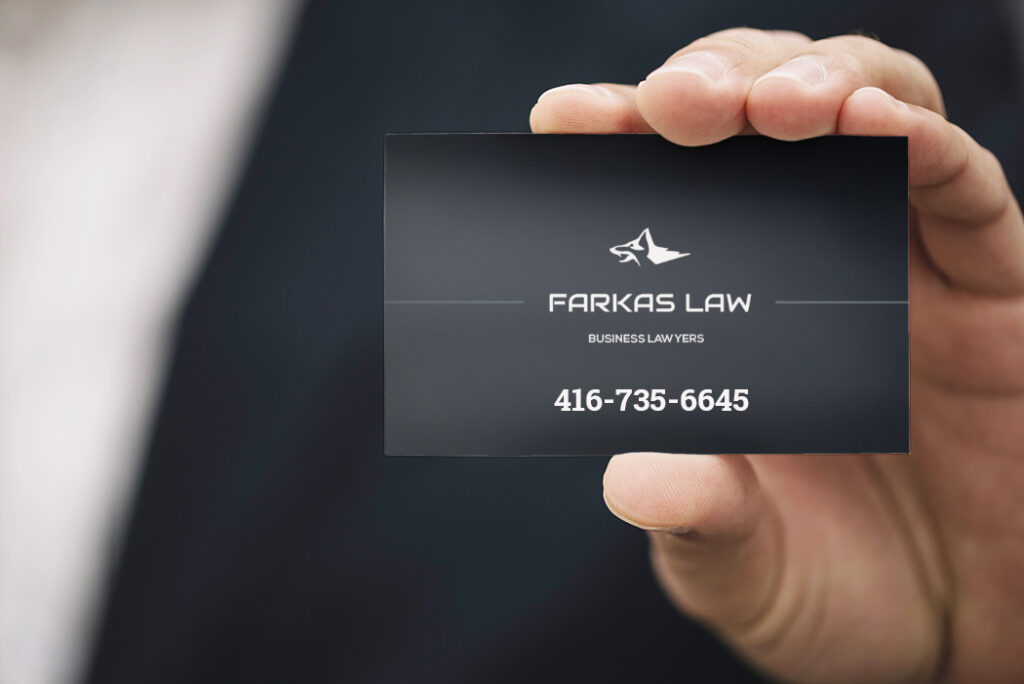
Farkas Law “Business Lawyers”, the independent law firm chaired by Dezso Farkas, caters to the needs of small and medium-sized business clients. The self-description of the firm is stated as a body of “Business Lawyer” with an aim to provide customized legal services, guidance and trusted advice for business ventures of all kinds. Currently the clientele of Farkas Law includes start-ups, commercial landlords, real-estate developers, manufacturing companies, non-profit organisations and small business owners. The firm acts as an external “in-house” corporate counsel to save their valuable resources and focusing them towards successful outcomes.
Dezso’s substantial history of merit is a result of his personal ideology which can be better expressed by himself:
I believe in continuous professional growth and I am committed to gaining new knowledge and experience to better serve the needs of my clients.
Dezso Farkas
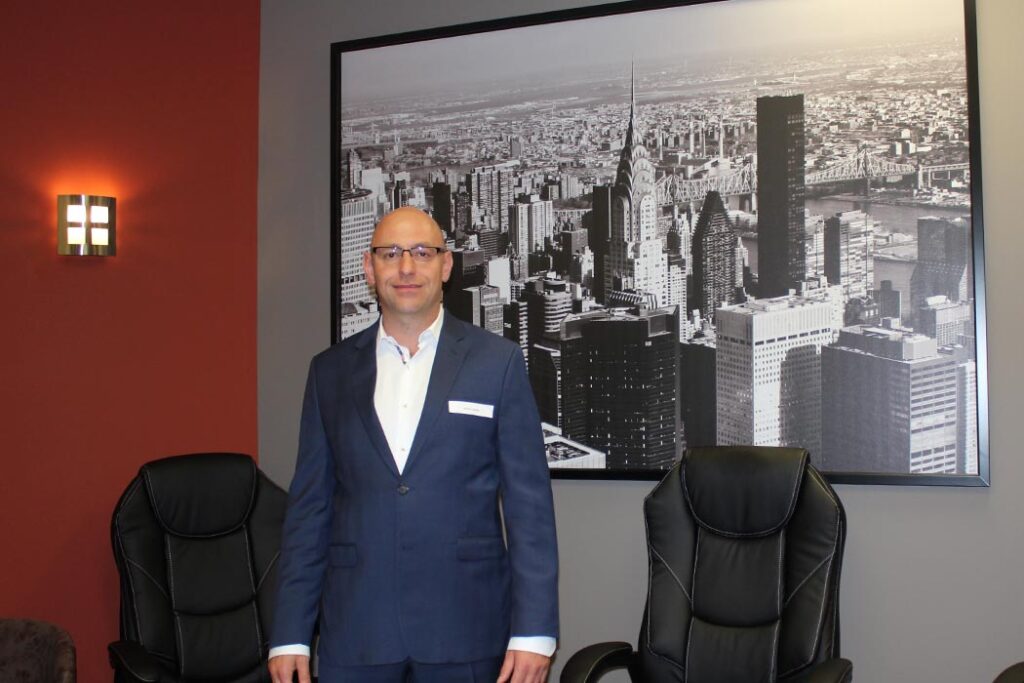
Vision
Ideally lawyers are intended to be a means of resolving problems for their clients. Sadly, not all lawyers are attuned to the needs of their clients. For Dezso Farkas, the motivation to become a lawyer came from his own unsavory past experience. As a young entrepreneur, Deszo encountered some obstacles and to resolve them he obviously pursued legal assistance; unfortunately, he got saddled with a ‘disengaged’ lawyer. At this point Dezso realized how detached lawyers are to the ideology of young entrepreneurs. Back then, if he had been a lawyer, he definitely could have handled his case more efficiently, he realized that going into law practice could be a real opportunity for him to help people.
Young entrepreneurs have no idea of the trouble they might get into when they are starting out. Its not possible for them to know everything about the line of commerce they are about to enter on their own. The consequences of their natural ignorance can sometimes be dire. Consequently, it is more complicated to undo a problematic situation than to avoid it in the first place.
Nevertheless, if an entrepreneur seeks the right advice from the very beginning, there’s no reason for them to get into trouble. According to Dezso, the biggest complaint he hears from his clients is that other lawyers don’t understand their clients’ businesses. Dezso on the other hand wants to understand his clients’ businesses and perspectives. He has a desire to leave people better than when they first came to him seeking a solution to their problems. In his own words, Dezso wants to be ‘Their Trusted Advisor’.
Wolf Law Chambers

Not all lawyers have the innate ability and the right personality to make it as sole practitioners. Lawyers who possess such qualities cannot work under others for long and can only thrive when they work for themselves. However, when these lawyers enter the domain of sole practice, they face a multitude of unique challenges they are not ready for. Support is non-existent as a result of their isolation and limited networking opportunities. The Law Society provides certain resources, to help solo firms stay compliant, but they have no avenue of providing any personalized advice in light of the ever-evolving business landscape to individual lawyers. In terms of modern-day workspace flexibility, the options for a lawyer on his own are very limited. Sometimes it becomes practically impossible for them to go out and search for law-based developmental resources to further their practice.
To Dezso the idea behind the creation of Wolf Law Chambers came as a solution to all the problems discussed above, which are being faced by lawyers. The services available at Wolf Law Chambers are uniquely targeted for law professionals, in order to allow them to grow personally in their sphere. The networking opportunities at Wolf Law Chambers are incredibly advantageous for sole practitioners. All the available resources, connections and events, allows lawyers to seek counsel from others in their profession, without any prejudice and with the purpose of benefiting each other. All of this is being carried out by lawyers at Wolf Law Chambers, while retaining their status as owners of their own law firms.
All lawyers should seek every opportunity they can to enhance their practice.
Dezso Farkas
Future
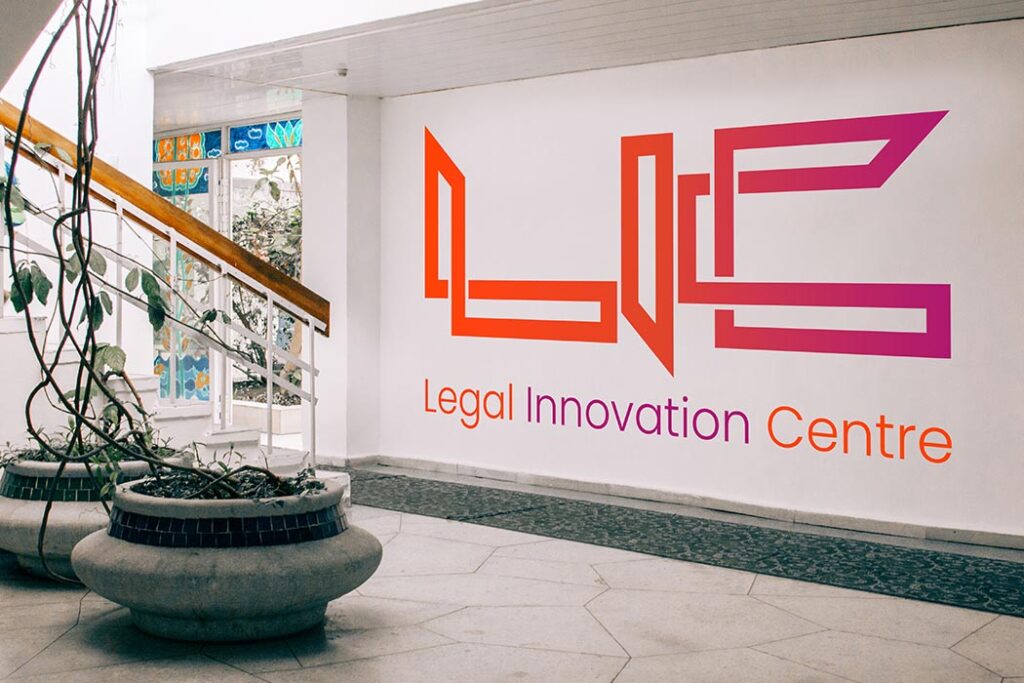
For Dezso Farkas, the future is just as promising as his present. He’s already planning to launch his upcoming project; the Legal Innovation Centre. Legal Innovation Centre will act as a ‘technology incubator’ to mentor start-ups in areas of legal research and development. According to Dezso, currently technology start-ups in the GTA West area are facing many challenges. There is a definite need for a facility like Legal Innovation Centre. The center will alleviate issues using their 3-step assistance plan; finding funding programs, providing a collaborative space and introducing start-ups to an already established network of industry experts. Legal Innovation Centre will focus resources on technological innovations which aim to shape the legal industry.


